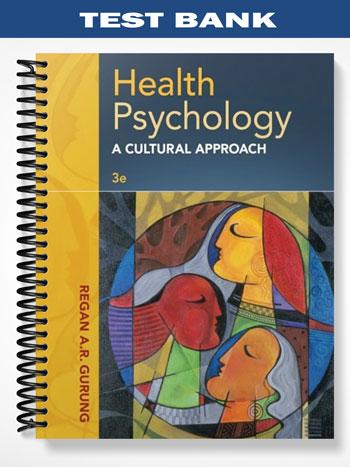Test Bank for Health Psychology A Cultural Approach 3rd Edition by Gurung
$25.00
Complete downloadable Test Bank for Health Psychology A Cultural Approach 3rd Edition by Gurung. INSTRUCTOR RESOURCE INFORMATION
TITLE: Health Psychology A Cultural Approach
RESOURCE:Test Bank
EDITION: 3rd Edition
AUTHOR: Gurung
PUBLISHER: Cengage Learning
Download sample
Description
Complete downloadable Test Bank for Health Psychology A Cultural Approach 3rd Edition by Gurung. INSTRUCTOR RESOURCE INFORMATION
TITLE: Health Psychology A Cultural Approach
RESOURCE:Test Bank
EDITION: 3rd Edition
AUTHOR: Gurung
PUBLISHER: Cengage Learning
Table of content
1. Health Psychology: Setting the Stage.
2. Cultural Approaches to Health.
3. Essential Physiology.
4. Stress across Cultures.
5. Coping and Social Support.
6. Models of Behavior Change.
7. Health Behaviors: Eating, Physical Activity, Smoking, and Drinking.
8. Factors Surrounding Illness.
9. Pain.
10. Chronic Illness, Terminal Illness, and Death.
11. Psychoneuroimmunology and HIV.
12. Culture and Cancer.
13. Culture and Cardiovascular Disease.
14. The Future of Health Psychology.
[embeddoc url=’https://etestbanks.net/pdf_samples/Test_Bank_for_Health_Psychology_A_Cultural_Approach_3rd_Edition_by_Gurung_sample_chapter.pdf’]






